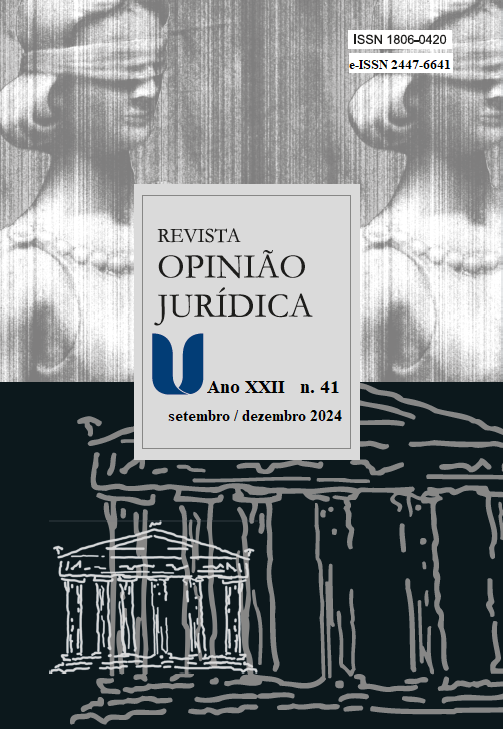Protestantism and legal positivism
the transformation of the concept of law by the Lutheran Reformation
DOI:
https://doi.org/10.12662/2447-6641oj.v22i41.p1-33.2024Keywords:
law and theology, protestant reformation, legal positivismAbstract
Background: The Protestant Reformation was the first major movement against the medieval legal tradition in force at the West since the Roman Empire. The reformers, by founding a religious or theological positivism with Christian roots – built primarily on positive sources – laid the foundations for the emergence of a legal positivism, a phenomenon foreign to the previous paradigm and without historical precedent in the way of thinking about the totality of law, due to the unprecedented experience of the monism of the sources.
Objectives: To evaluate the impacts of the Reformation on the rise and consolidation of legal positivism from the eighteenth century onwards, in order to confront it with the previous paradigm. To this end, the classical theory of law, built over millennia and whose main heir is found in the scholastic tradition of medieval legal pluralism, as well as the phenomenon of theological monism triggered by the religious revolt against the Roman Catholic Church, will be presented, in a brief and reduced way, studying its consequences for positive legislation and natural law.
Method: This research has a qualitative and exploratory nature, starting from a bibliographic review of the literature on the subject through a historical study of the main primary sources on the matter.
Result: As a result of this reformed doctrine, Western legal thinking, which was deeply grounded on an Aristotelian-Thomist philosophy, was also influenced by other the new-born Protestant Theology, particularly by Martin Luther and Protestant jurists like Philipp Melanchthon and Johann Oldendorp.
Conclusion: This paper contributes to the understanding of the influence of these characters – often forgotten – on the formation of the modern concept of Law, focusing particularly on its relationship with the after-called Legal Positivism, which will be born and consolidated in the following centuries. The theological assumptions put forward by Luther and his disciples were at the core of what became known as this typical current of Modernity, and, without them, such line of legal thought would hardly have found fertile soil to develop.
Downloads
Published
How to Cite
Issue
Section
License
Copyright (c) 2024 Revista Opinião Jurídica (Fortaleza)

This work is licensed under a Creative Commons Attribution-NonCommercial-ShareAlike 4.0 International License.
CESSION OF COPYRIGHTS
The submission of articles to analysis for publication on Opinião Jurídica implies the author(s) transfers copyrights to Centro Universitário Christus – UNICHRISTUS for reproduction, publicizing, distribution, printing and publication, according to the Publication Norm 414R, Opin. Jur., Fortaleza, year 12, n. 16, p.1-414, Jan./Dec. 2014, costs to be bore by UNICHRISTUS, in whatever format or means that may or shall exist, in accordance to articles 49 and following of Federal Law 9.610/98.
1. In ceding copyrights, the author(s) agrees to do so in exclusivity, free of charge and for the totality of the work.
2. UNICHRISTUS may make the work, in its entirety or in parts, available for scholarly purposes, without altering its contents, except for small corrections that are deemed necessary.
3. The cession of copyrights is valid in all countries and for versions of the material in its original language or translated into a foreign language.
RESPONSIBILITY FOR THE CONTENT
By submitting an article, the author(s) declare to have sole responsibility for the content of the piece and is(are), therefore, responsible for any judicial or extrajudicial measures referring to it.
1. In case of joint authorship, all authors are considered collectively responsible, except when proved otherwise.


















